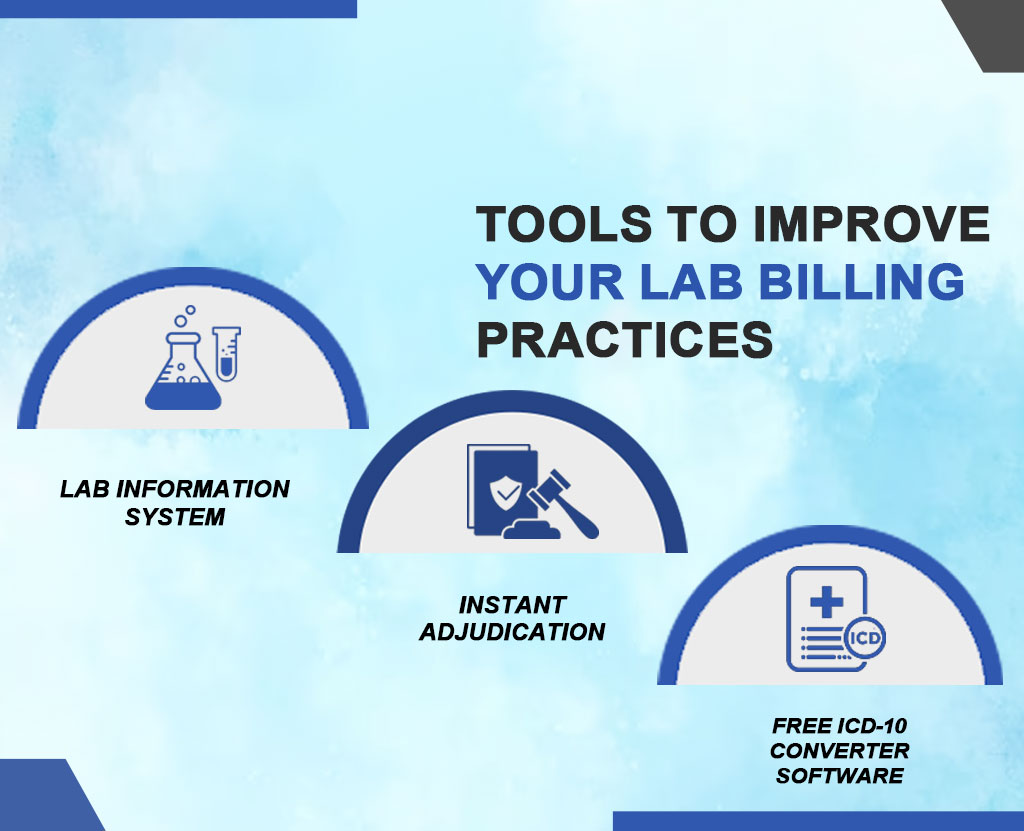Laboratory services contribute to accuracy within the diagnosis process and managing disease in fast-practiced health care. The laboratory billing and coding involved in the compensation of laboratories elaborate on the extent to which these services are rewarded. Achieving the uniformity of the code for the medical test and treatment for payment claims is challenging but required.
A laboratory’s financial health depends on accurate billing and coding to charge services appropriately and collect payments quickly. A 2022 American Hospital Association analysis found that proper laboratory billing and coding can minimize claim denials by 25%, boosting healthcare facilities’ financial flow.
Process Of Laboratory Billing and Coding
Most healthcare administrations depend on laboratory billing and coding to claim reimbursement. This procedure comprises several significant steps, from the patient intake to the payment. Each step of billing and correct healthcare compliance instructions must be comprehended to have an accurate bill.
Registration of the Patient and Collection of Data
The flow begins with the registration of patients. Demographic data of the patient, insurance data, and medical historical data are supposed to be precise. This data confirms the insurance plan and patient’s qualification to determine whether the patient’s plan provides coverage for lab services.
Ordering and Documenting Tests
The medical practitioners request tests after obtaining data concerning a particular patient. This is true because accurate billing of tests depends on the proper documentation of the test order. The components include the requested tests, the medical necessity of each, and any clinical information relating to the cases involved.
Specimen Acquisition and Processing
Listing billable codes and coding will require specimen collection and processing in the laboratory. Every specimen should be labeled and handled according to specific procedures. This makes the test accurate as well as reliable when it comes to producing results. Document handling and sampling are essential to billing claims.
Laboratory Service Coding
Coding is the process of translating laboratory services into specific code. CPT codes are used for testing, and ICD codes are used to diagnose the illnesses or diseases being tested. Coders help insurance firms to process the reimbursement claims, and therefore, the classifications should reflect the truth.
Claim Submission
After the laboratory services have been rendered and coded, they are followed by claims submission. Insurance payers repay claims. Depending on the payer, this can be done through electronic or paper claims. There are aspects of the claim regarding the patient, the test code numbers, and any other relevant documents.
Payment Posting/Reconciliation
After submitting the claim, the lab must track its status and post payments. Payment posting entails entering payment details into the lab’s billing system and reconciling claims. This stage reveals inconsistencies like underpayments or denials that must be rectified immediately.
Appeal and Denial Management
Insurance companies may deny claims. Denial management entails investigating and correcting denials. This may involve adding documentation, fixing coding problems, or appealing the denial. The laboratory must manage denials well to get paid.
Patient Billing/Collections
The laboratory will charge the patient for the remaining unpaid sums after insurance compensation. A clear and accurate bill design is essential for the sound relationship between the patient and the medical facility and prompt payments. The lab must have a process to manage patient collection and patient requests.
Tools to Improve Your Lab Billing Practices
If your lab pays its own bills, you must always look for ways to improve things. The goal is to stay competitive and make money. Robust software tools help big labs strengthen their work, but this might be hard or pricey for smaller groups. No, you don’t have to. You just need the best, most affordable tools for your lab.
Managing costs and getting higher reimbursement rates should be your top goals, but care shouldn’t have to suffer.
Use these three tools to make your bills better:

Lab Information System
Instant Adjudication
To ensure your lab’s success, you must continuously analyze and improve your billing systems to provide clean, paid claims. The need to accelerate cash collections during patient care has never been greater. Automated eligibility tools let you verify a patient’s coverage, file a claim, and get an answer before they leave the office.
Free ICD-10 Converter Software
This program, the ICD-10 Converter program, can help smaller practices change thousands of codes. The program bundle for ICD-10 charts can change 10,000 codes. These charts make it more likely that you’ll code claims properly, which will cut down on denials.
Importance of Laboratory Billing Consultants
Laboratory billing consultants are experts in laboratory billing and coding. These consultants manage medical billing complexity to code and bill every test and procedure appropriately. Their duties include auditing billing methods, suggesting improvements, and advising on industry laws.
How Consultants Can Improve Accuracy and Efficiency
Laboratory billing and coding experts can improve billing accuracy and efficiency with their experience. They carefully check coding methods to charge each test appropriately, reducing claim denials and underpayments. Consultants also automate billing activities, improve workflows, and adopt best practices. This reduces billing errors and speeds up billing, improving revenue cycles.
Reference Laboratory Billing Guidelines
Reference laboratory billing rules must be followed for accurate and compliant healthcare billing. By structuring laboratory billing, these principles help laboratories negotiate insurance claims and payment processes. Understanding and implementing these rules is crucial for financial stability and legal avoidance.
Reference laboratory billing guidelines are essential for various reasons:
- Regulation compliance
- Correct Repayment
- Efficiency in Operations
Conclusion
Laboratory billing and coding are critical factors in the efficacy and profitability of any lab, and they must be done well.
To inflate the accuracy of the processes performed and enhance the management of costs and revenue cycle, laboratory billing specialists are vital. Understanding laboratory billing and coding rules that apply to reference laboratories assists laboratories in managing their insurance claims and eliminating errors and denials.
Resilient MBS offers expert laboratory billing and coding services. Our specialists can help improve your billing processes and help the company become fully compliant with industry standards. Contact us today to determine how we can assist your lab.
FAQs
Laboratory billing involves submitting claims to insurance companies for laboratory services, ensuring accurate payment and reimbursement for diagnostic tests and procedures.
Standardized codes, like CPT (Current Procedural Terminology) and ICD (International Classification of Diseases), indicate lab tests and services for billing and record-keeping. This is called laboratory coding.
Denial management in laboratory billing identifies, addresses, and resolves denied claims from insurance companies to ensure proper reimbursement for laboratory services.
The CPT code for a lab changes based on the test or treatment being done. For example, CPT 80053 is for a complete metabolic test, and CPT 81001 is for a urinalysis with microscopy.
Labs can make the payment process better by:
- Using correct methods for writing and documentation.
- Using billing tools to make it easier to send in claims.
- Training staff on new bills and coding changes regularly.
- Effectively managing and keeping an eye on rejections.
- Make sure there is clear contact with patients and insurance companies.










